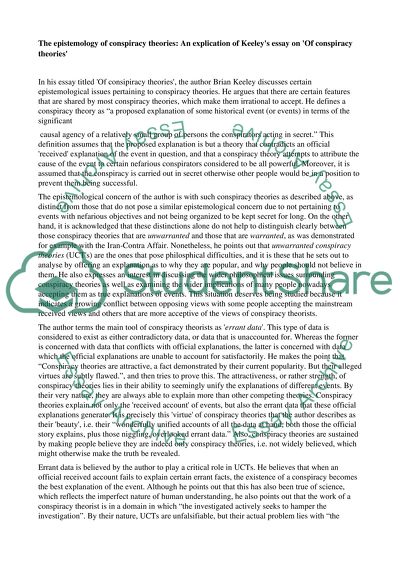Cite this document
(“The Epistemology of Conspiracy Theories Essay Example | Topics and Well Written Essays - 1250 words”, n.d.)
The Epistemology of Conspiracy Theories Essay Example | Topics and Well Written Essays - 1250 words. Retrieved from https://studentshare.org/philosophy/1495767-the-epistemology-of-conspiracy-theories
The Epistemology of Conspiracy Theories Essay Example | Topics and Well Written Essays - 1250 words. Retrieved from https://studentshare.org/philosophy/1495767-the-epistemology-of-conspiracy-theories
(The Epistemology of Conspiracy Theories Essay Example | Topics and Well Written Essays - 1250 Words)
The Epistemology of Conspiracy Theories Essay Example | Topics and Well Written Essays - 1250 Words. https://studentshare.org/philosophy/1495767-the-epistemology-of-conspiracy-theories.
The Epistemology of Conspiracy Theories Essay Example | Topics and Well Written Essays - 1250 Words. https://studentshare.org/philosophy/1495767-the-epistemology-of-conspiracy-theories.
“The Epistemology of Conspiracy Theories Essay Example | Topics and Well Written Essays - 1250 Words”, n.d. https://studentshare.org/philosophy/1495767-the-epistemology-of-conspiracy-theories.


